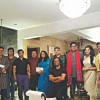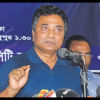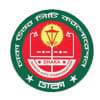Remembering Annisul Huq: The man behind the public persona

"Suchitra will always be Suchitra in my head and never a year beyond 50 at the max."
That said a lot about his own desire to be "forever panting, forever young." For a person who loved life, adda and public life, he preferred invisibility when it came to ageing. And that's the way he went. I made sure that no one saw him in his intubated state, and went to great lengths to ensure that his last pictures would be of him looking incredibly handsome in a blue kurta or a black suit.
Six years ago, a perfectly healthy man in his 60s just left me and my children in a state of shock and emptiness. From the status of a well-meaning, dedicated public servant, Annisul Huq, the mayor of Dhaka North, became an obituary mention in less than six months. He was diagnosed with cerebral vasculitis, a rare disease that stops the brain.
It was mid-June in 2017 when Annis started to feel dizzy. Subsequent tests including CT scan, MRI and MRA tests revealed tiny age-related infarcts. Doctors in Dhaka diagnosed vertigo. Like most of us who suffer from vertigo, Annis also took Menaril and Revert. Follow-up tests in early and late July revealed no substantial findings. On July 28, 2017, his yoga instructor noticed convulsions during meditation, and without wasting time, on July 29, we flew to London. Our daughter Wamiq was due with her first child, our grandson, in August, and there was no way Annis would miss out on that grand occasion.
A day after we arrived in London, a consultant of neurology at the National Hospital for Neurology and Neurosurgery, UCLH examined Annis. He, too, was unable to come up with a definite diagnosis. It was only after Annis was examined by an ophthalmologist that we got close to the cause. A loss of vision was reported during a field test and he was then referred back to neurologists. MRIs from early August then showed cerebral inflammation, but a lumbar puncture ruled out any sign of infection or inflammation in any other parts of his body. It was only then that the doctors concluded that he had cerebral vasculitis.
I vividly remember that he had the Banani graveyard project to finish by August 14, 2017 and couldn't bear to be off his phone. And yet, he was undone. With intravenous steroids invading his system, with a low sodium level of 117, he was close to losing consciousness. At that point, in order to cheat the nurses, I kept on reminding him of his date of birth, the name of the city he lived in and the names of his children.
It was then that my journey began with Annis fading into the twilight zone.
I vividly remember that he had the Banani graveyard project to finish by August 14, 2017 and couldn't bear to be off his phone. And yet, he was undone. With intravenous steroids invading his system, with a low sodium level of 117, he was close to losing consciousness. At that point, in order to cheat the nurses, I kept on reminding him of his date of birth, the name of the city he lived in and the names of his children. That was August 12, 2017. With the third dose of steroid given, he lost consciousness for 24 hours, and when he woke up on the 13th, he was not fully coherent and slid back to an unconscious state again, never to wake up, in spite of an array of interventions including cyclophosphamide, rituximab, CPAP et al. It was on October 30, a month before his last day on earth, when we transferred him to Wellington Hospital in St John's Wood. There, he spent the last days of his life, with his eyes closed and with no sign of recognition or consciousness.
The man who always had a steady blood pressure of 120/80 and panicked with a slight elevation to 130/90, a man who had blood tests every three months, a man who walked every day, attempted running once in a while and ate as much as his tummy would allow, just left me and my children, six years ago on this date, blown away by God's wind, without any of us even faintly hearing Death knocking at our door.
Annis and I met at Bangladesh Television way back in the 80s. I was a college debater who was a part of his programme: Antaraley. After a bout of personal hiccups on both our ends, we came together in 1991, as mother and father of two young children—Navid, then seven years old, and Wamiq, then five. Together we had two children: Tanisha and Sharaf. As parents, we suffered the biggest blow when we lost our youngest child, Sharaf, to osteosarcoma, a rare disease for someone as young as our baby, who was only four when the disease hit him.
Together, Annis and I went through a journey, which marked his life from a business person and a television anchor to a life that took him to head BGMEA, FBCCI and then to finally become the mayor of Dhaka North…
During this pre-election frenzy, I miss having my breakfast with him, where he and I would argue about every piece of news. I miss having the political adda at home, where along with his friends and mine, we would have a chance to dissect every political angle and every discourse on governance. I miss watching him snuggle up to the comfort of the sofa, getting ready to watch a Hindi movie. I miss reminding him that Hindi wasn't my strength and why I would never understand his rationale behind watching Kabhi Khushi Kabhi Gham over and over again. But it was indeed heartwarming to watch him relax in between breaks he took from constantly obsessing about the city. It was encouraging to sense the innocence and humility of a man who thought he would have to wow every audience with something new every time he addressed them. It was fun to watch him look for new quotes and memorise every data that he wanted to use.
This was a man who depended on The Economist's yearly data, picked up on every new story around the country, bullet-pointed every mail or message that he wanted to send out, obsess about headers being in bold, and delivered what he signed up for.
This was also a man who was a great dad to all four of his children, held them close to his heart and died while he was trying to build the perfect picture for each one of them. This was also a man who loved jhalmuri and came back home with soiled pockets of any garment he wore, simply because he didn't believe in napkins. He came home to walk into the kitchen to eat straight from the oven and then walk upstairs calling my name…
After six years of holding on to his wardrobe, I decided to give all that he had away with the exception of a few pieces. He wore kurtas tailored in our own factory; he wore suits that cost him less than a hundred dollars and wore watches bought randomly on our trips together. I remember the time when he insisted on sending a cheap watch back to the tiny little souvenir shop in Geneva from where we had bought it, to solve a glitch that he was facing. And because he would have it no other way, I pretended to send it to Geneva and instead sent it to Baitul Mukarram to have it fixed without him sensing what I had done. White lies like this, you see, don't hurt.
What hurts most is when tragedies strike you all of a sudden, when one scan changes your entire life, and when you end up feeling defenceless, powerless and all drained in the absence of the person you lose.
The reason I decided to share the details with you all today is not to glorify Annis. He was just a public servant who knew his obligations and performed well with an integrity and self-esteem that disallowed him to act like a political fool.
I wrote this piece for my own selfish reasons. I resumed work right after I lost Annis. Ever since 4:05pm at Wellington Hospital on November 30, 2017, when my children and I watched the sun go down and he climbed his stairs up to heaven, we haven't rested even for a bit. And most importantly, we haven't grieved enough for the man he was.
So while I wanted to share how a simple man from Noakhali had the charisma and goodness to be loved by so many in this land, I also wanted to remind myself of the trail of charm and the legacy that he gifted to me and my children to carry forward, with courage and decency.
Rest in peace, Annis.
Dr Rubana Huq is vice-chancellor of Asian University for Women.
Views expressed in this article are the author's own.
Follow The Daily Star Opinion on Facebook for the latest opinions, commentaries and analyses by experts and professionals. To contribute your article or letter to The Daily Star Opinion, see our guidelines for submission.

 For all latest news, follow The Daily Star's Google News channel.
For all latest news, follow The Daily Star's Google News channel. 











Comments